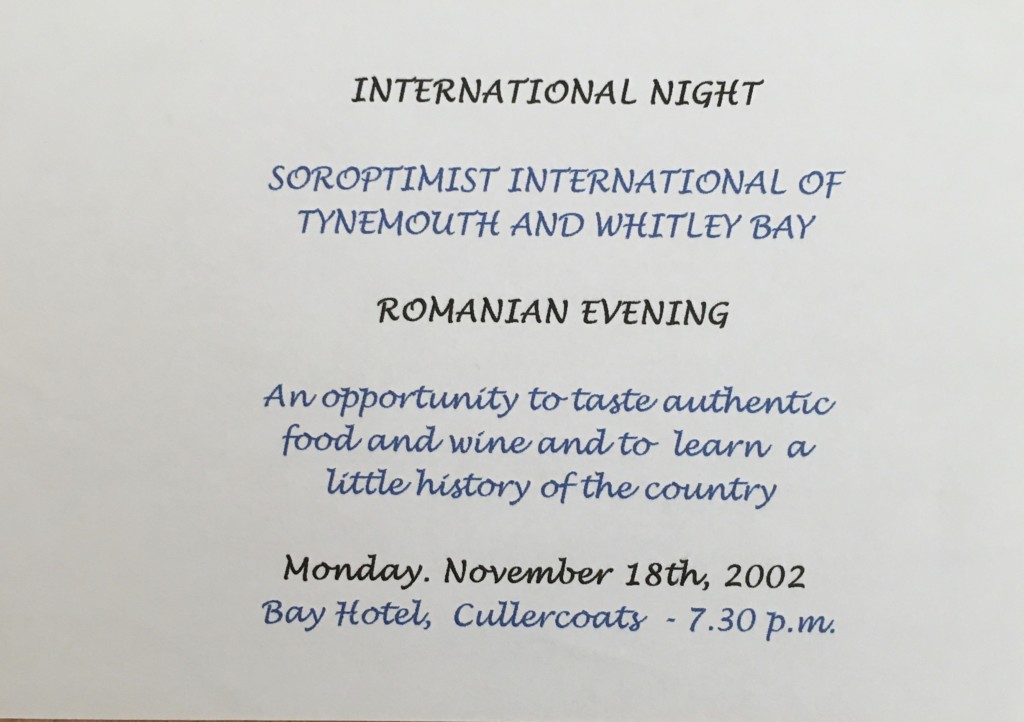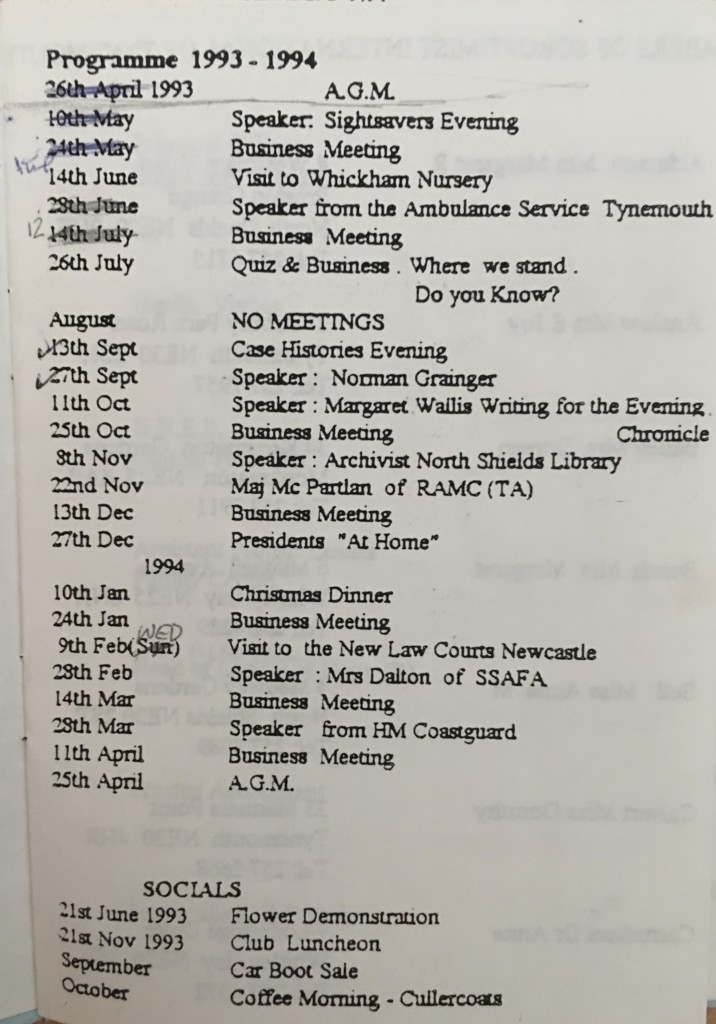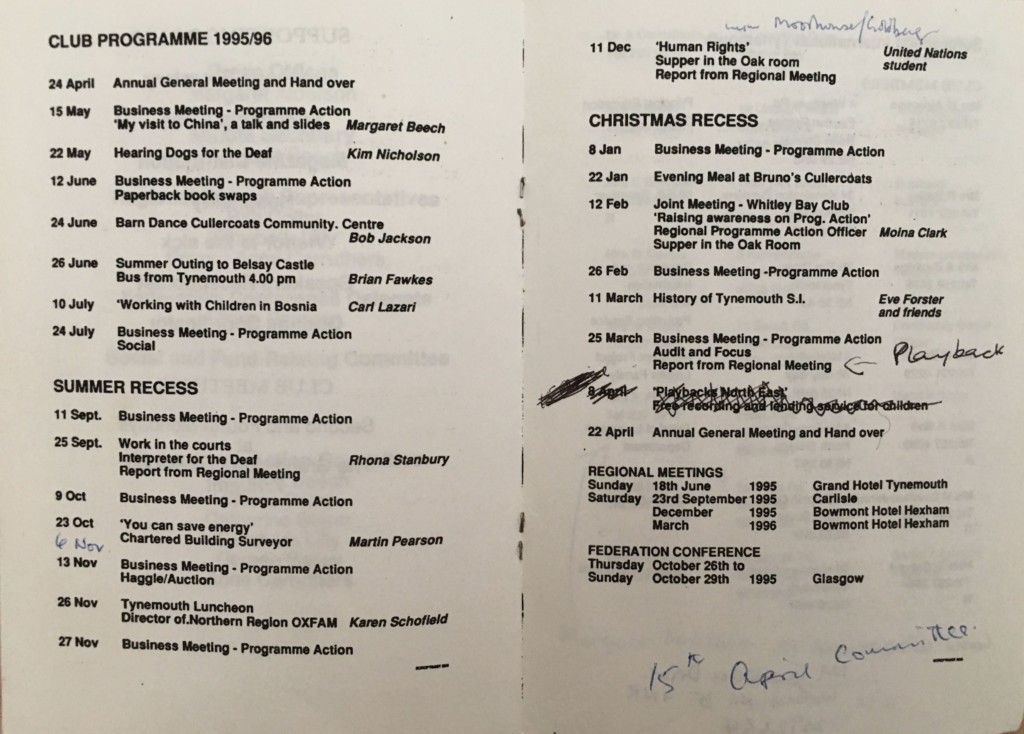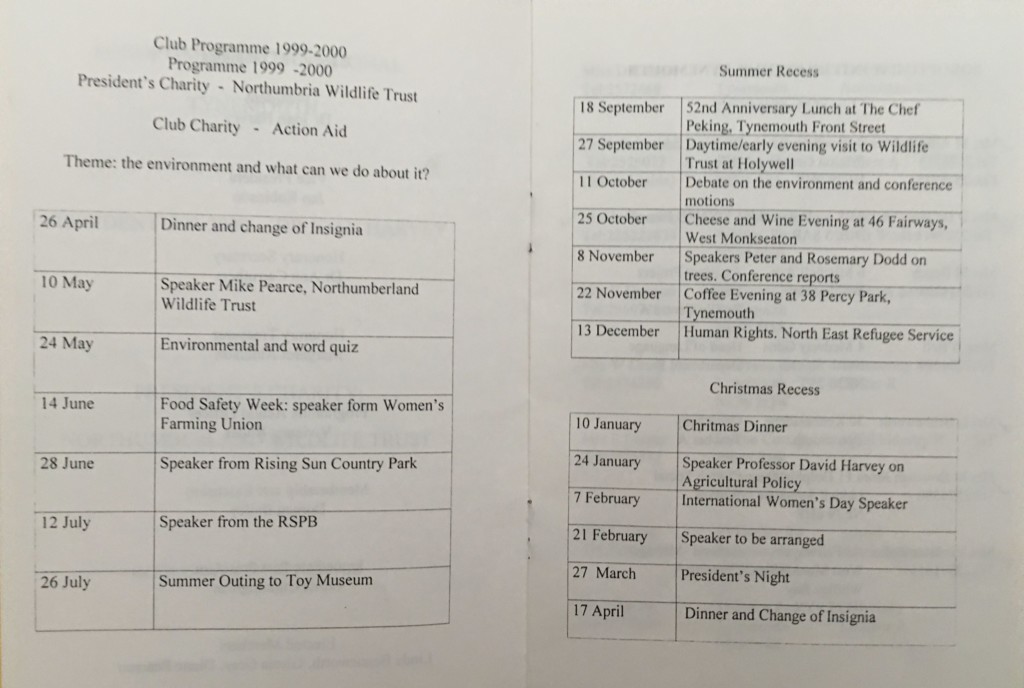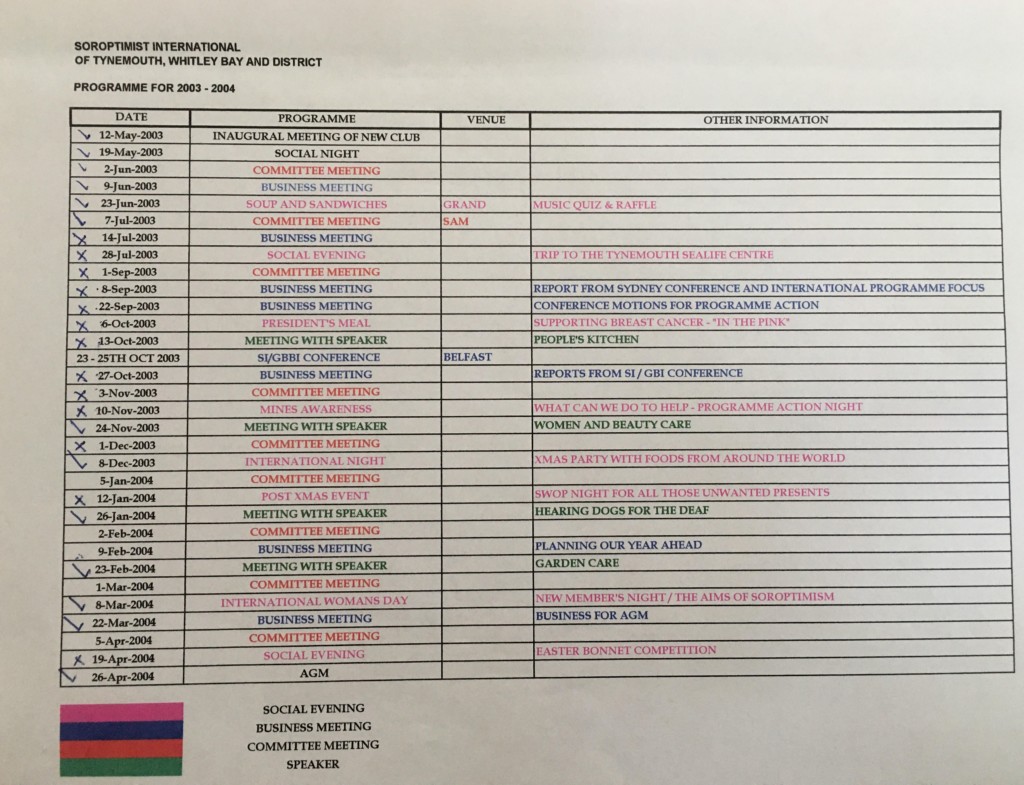Speakers
By the 1960s, Whitley Bay club meetings involved speakers on a much more regular basis and topics often related to issues still relevant today. Sometimes the minutes only record who spoke, the title of the talk and the vote of thanks. Sometimes, however, the minute taker recorded details about the talk which provide us with a unique insight into the lives of women.
On 17 April 1961, for example, the speaker was Rev. Ella Gordon from High Howden Presbyterian Church, the only woman in the country to hold such position. Rev. Gordon spoke about the long process of achieving her goal, only reached “after some disappointments”, an experience probably still echoed by women today.
On 15 January 1962, the speaker was Miss Purvis, the manager of the Blyth Employment Exchange who spoke on the employment of married women. Miss Purvis’ experience suggested to her that married women who worked used to come from “opposite ends of the social scale” such as mill workers and professional women. In the early 1960s, however, women of all classes were working. The motivation for married women seeking work varied. For some it was economic necessity and for others it was custom, for example agricultural and domestic workers. However, some married women wanted to work so that they could afford to buy “modern house equipment”. This period saw growing opportunities to buy things we take for granted such as fridges, washing machines (remember the twin tub?) and televisions and Miss Purvis’ analysis suggests extra income was needed to afford these. She also gives us an insight into the views of the employers. Generally, she said, they preferred to employ unmarried women or failing that, unskilled women with no family ties. This, of course, would mean the employer did not have to address issues relating to women leaving when they married or were pregnant.
Other topics addressed by speakers at Whitley Bay club meetings in the 1960s included the welfare of older citizens in which the guest expressed the view that older people were not valued by the younger and emphasised that society should enjoy the richness of old age. Another topic still very relevant today was the matter of early marriage, including discussion of forced marriage.
Speakers were also invited to talk on aspects of women’s health. On 22 June 1965, the speaker was from the Association for the Improvement of Maternity Services. Some of the issues she raised are familiar even now, including differences between areas instead of even high standards and severe staff shortages . She also emphasised that psychological and physical needs were indivisible in maternity services. The speaker urged members to push politicians to effect improvements and to push local authorities to encourage cervical cancer tests and make them known and available everywhere.
From the late 1960s onwards, the Whitley Bay club minutes no longer record in detail the content of the talks given in meetings. A range of topics were covered including decimal currency, occupational therapy, the work of physiotherapists, rights to privacy, the work of the Newcastle Diocesan Council for Moral and Social Welfare, the Community Health Council, Crime Prevention, the work of the Samaritans, the opening of St Oswald’s Hospice, the work of the Equal Opportunities Commission and the issue of cervical cancer. Speakers also presented on the topics of heraldry, philately and Royal Worcester china and there were frequent talks on the nature of Soroptimism.
Speakers at meetings were often club members and a popular theme for their talks was experiences in travelling abroad. Given that in the 1960s, people did not travel as much as we do now, some members were adventurous in their choice of destination; holiday talks, usually accompanied by slides, covered visits to Russia, Yugoslavia, the Caribbean and Curacoa. On 02 October 1967, a member gave “a most entertaining and often hilarious talk” about her holiday in the USA and Canada in “her own inimitable way”.



